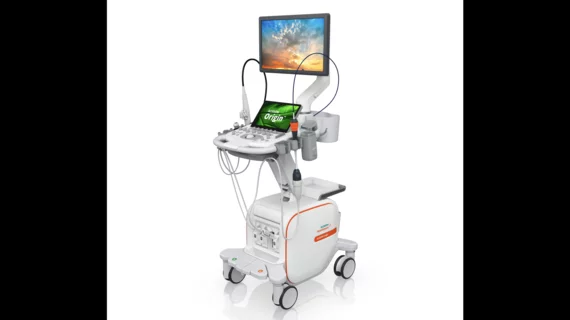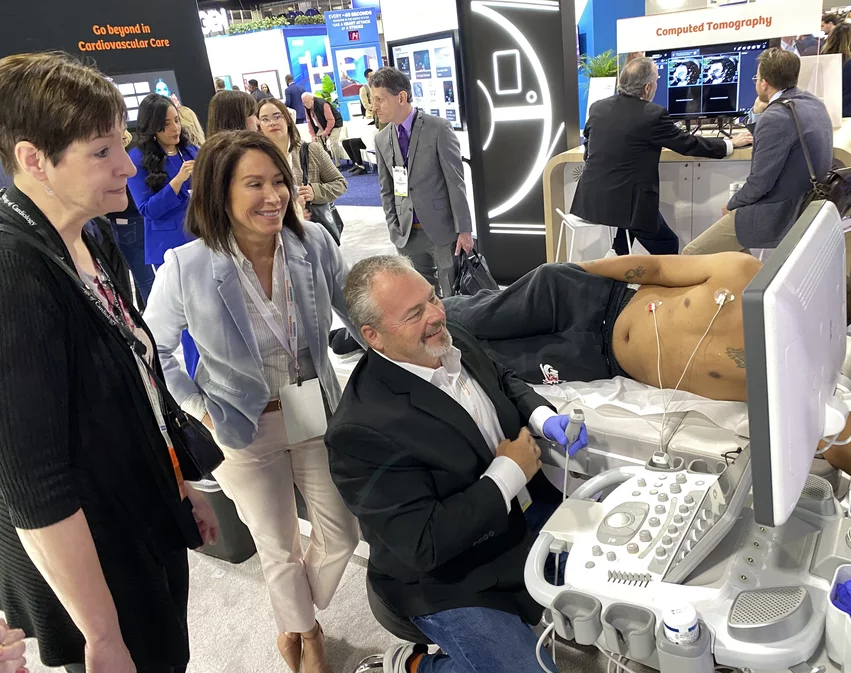Siemens Healthineers gains FDA clearance for new AI-powered cardiovascular ultrasound system
Siemens Healthineers has gained U.S. Food and Drug Administration (FDA) clearance for Acuson Origin, its new cardiovascular ultrasound system featuring advanced artificial intelligence (AI) capabilities
The Acuson Origin represents a significant update from the prior Siemens Healthineers cardiovascular ultrasound system, the Acuson SC2000. It includes algorithms designed to assist users with the treatment of diagnostic, structural heart, vascular, electrophysiological and pediatric patients. Its AI models can capture more than 5,000 measurements during transthoracic echocardiography and transesophageal echocardiography exams, recognize cardiac structures on its own without prompting, contour and quantify all four chambers of the heart and even anticipate what operators will want to do next.
The system also comes packaged with a 4D intracardiac echocardiography (ICE) catheter, the brand new AcuNav Lumos, which delivers multiplanar reconstruction imaging with or without the use of an electrocardiogram in addition to upgraded leak detection.
Another key feature on the newly cleared system is AI Assist, which automatically provides a proper view and Doppler placement on 23 different targets when operators use one of 12 standard echocardiogram views. AI Assist is associated with an accuracy of 99%, ensuring care teams can treat patients right away as opposed to going through a full process just to get started.
“With its advanced AI features and potential to enhance diagnostic accuracy as well as patient care, the Acuson Origin is positioned to reshape healthcare’s approach to cardiovascular imaging,” David Zollinger, head of cardiovascular ultrasound at Siemens Healthineers, said in a statement. “And the AcuNav Lumos is the latest milestone in our 24-year history with ICE. Since 1999, our ICE catheters have helped more than 2 million patients, reducing the need for anesthesia during procedures.”
‘Truly revolutionary’: Imaging leader shares early review of the Siemens Healthineers Acuson Origin
Siemens Healthineers first debuted the new system in August 2023 at ESC Congress 2023 in Amsterdam. During that conference, Cardiovascular Business spoke to specialists who helped test Acuson Origin prior to its launch.
“This is truly revolutionary,” said Robert Burke, MD, director of noninvasive cardiovascular diagnostic imaging for HonorHealth in Phoenix. “Most of the time with a technology advancement, you can’t say that because it is just a new feature on an old system, but this is a completely new creature. For the first time, the machine knows what it is looking at, so it knows what the next three steps are to help you do them.”
"Everything that a machine should do for communication, Origin does,” added Mani A. Vannan, MD, a cardiologist with Piedmont Heart Institute in Atlanta. “I am very confident it will fill in all of those requirements. It is very quick … if you follow a protocol driven workflow, I think this machine performs very well in enhancing the workflow.”


